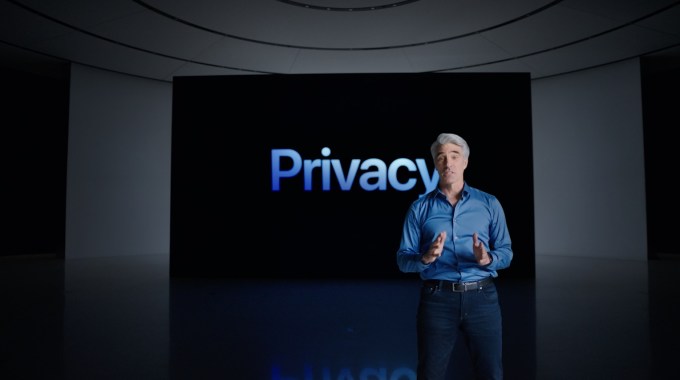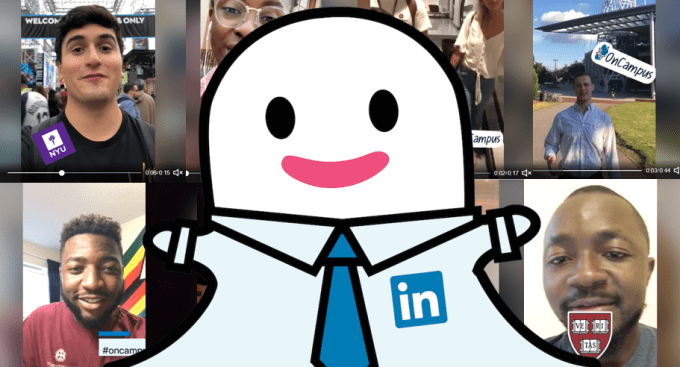TechCrunch Newsletters - Week in Review - Apple's big blind spot
|
||||
|
||||
|
||||
|
||||
|
||||
|
||||
|
|
||||
|
||||
|
||||
|
Older messages
Startups Weekly - What 377 Y Combinator pitches will teach you about startups
Saturday, September 4, 2021
TechCrunch Newsletter TechCrunch logo Startups Weekly logo Saturday, September 04, 2021 • By Natasha Mascarenhas Along with a cadre of other TechCrunch folks, I spent this week extremely focused on one
Fintech startup Jeeves snags $500M valuation after $57M Series B
Friday, September 3, 2021
TechCrunch Newsletter TechCrunch logo The Daily Crunch logo Friday, September 03, 2021 • By Alex Wilhelm Hello and welcome to Daily Crunch for September 3, 2021. As noted yesterday, most of TechCrunch
All the reasons why you should launch a credit or debit card
Friday, September 3, 2021
Extra Crunch Newsletter Extra Crunch logo Extra Crunch Roundup logo Friday, September 03, 2021 • By Walter Thompson and Annie Saunders Welcome to Extra Crunch Friday Image Credits: Bryce Durbin/
8 Indian banks launch Account Aggregator to centralize consumers' financial data
Thursday, September 2, 2021
TechCrunch Newsletter TechCrunch logo The Daily Crunch logo Thursday, September 02, 2021 • By Alex Wilhelm Hello and welcome to Daily Crunch for Thursday, September 2, 2021. TechCrunch is largely off
Week-in-Review: Limited time offer for free Disrupt passes
Thursday, September 2, 2021
Act fast to attend Disrupt for free TechCrunch Disrupt always taps the top experts, visionaries, founders, investors and makers to share their insights, tips and actionable advice. This year Disrupt,
You Might Also Like
Youre Overthinking It
Wednesday, January 15, 2025
Top Tech Content sent at Noon! Boost Your Article on HackerNoon for $159.99! Read this email in your browser How are you, @newsletterest1? 🪐 What's happening in tech today, January 15, 2025? The
eBook: Software Supply Chain Security for Dummies
Wednesday, January 15, 2025
Free access to this go-to-guide for invaluable insights and practical advice to secure your software supply chain. The Hacker News Software Supply Chain Security for Dummies There is no longer doubt
The 5 biggest AI prompting mistakes
Wednesday, January 15, 2025
✨ Better Pixel photos; How to quit Meta; The next TikTok? -- ZDNET ZDNET Tech Today - US January 15, 2025 ai-prompting-mistakes The five biggest mistakes people make when prompting an AI Ready to
An interactive tour of Go 1.24
Wednesday, January 15, 2025
Plus generating random art, sending emails, and a variety of gopher images you can use. | #538 — January 15, 2025 Unsub | Web Version Together with Posthog Go Weekly An Interactive Tour of Go 1.24 — A
Spyglass Dispatch: Bromo Sapiens
Wednesday, January 15, 2025
Masculine Startups • The Fall of Xbox • Meta's Misinformation Off Switch • TikTok's Switch Off The Spyglass Dispatch is a newsletter sent on weekdays featuring links and commentary on timely
The $1.9M client
Wednesday, January 15, 2025
Money matters, but this invisible currency matters more. ͏ ͏ ͏ ͏ ͏ ͏ ͏ ͏ ͏ ͏ ͏ ͏ ͏ ͏ ͏ ͏ ͏ ͏ ͏ ͏ ͏ ͏ ͏ ͏ ͏ ͏ ͏ ͏ ͏ ͏ ͏ ͏ ͏ ͏ ͏ ͏ ͏ ͏ ͏ ͏ ͏ ͏ ͏ ͏ ͏ ͏ ͏ ͏ ͏ ͏ ͏ ͏ ͏ ͏ ͏ ͏ ͏ ͏ ͏ ͏ ͏ ͏ ͏ ͏ ͏ ͏ ͏ ͏ ͏ ͏ ͏ ͏
⚙️ Federal data centers
Wednesday, January 15, 2025
Plus: Britain's AI roadmap
Post from Syncfusion Blogs on 01/15/2025
Wednesday, January 15, 2025
New blogs from Syncfusion Introducing the New .NET MAUI Bottom Sheet Control By Naveenkumar Sanjeevirayan This blog explains the features of the Bottom Sheet control introduced in the Syncfusion .NET
The Sequence Engineering #469: Llama.cpp is The Framework for High Performce LLM Inference
Wednesday, January 15, 2025
One of the most popular inference framework for LLM apps that care about performance. ͏ ͏ ͏ ͏ ͏ ͏ ͏ ͏ ͏ ͏ ͏ ͏ ͏ ͏ ͏ ͏ ͏ ͏ ͏ ͏ ͏ ͏ ͏ ͏ ͏ ͏ ͏ ͏ ͏ ͏ ͏ ͏ ͏ ͏ ͏ ͏ ͏ ͏ ͏ ͏ ͏ ͏ ͏ ͏ ͏ ͏ ͏ ͏ ͏ ͏ ͏ ͏ ͏ ͏ ͏ ͏ ͏ ͏
3 Actively Exploited Zero-Day Flaws Patched in Microsoft's Latest Security Update
Wednesday, January 15, 2025
THN Daily Updates Newsletter cover The Kubernetes Book: Navigate the world of Kubernetes with expertise , Second Edition ($39.99 Value) FREE for a Limited Time Containers transformed how we package and




